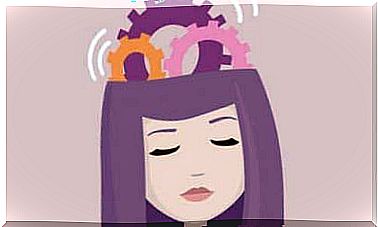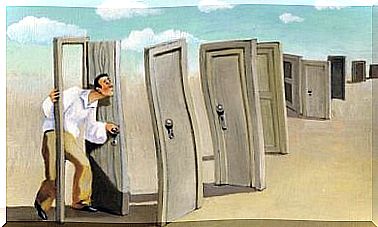The Savannah Theory Of Happiness: Better Alone Than In Bad Company

The savannah theory of happiness comes from conclusions drawn in a scientific study published in The British Journal of Psychology. It is an interesting theory, even if it has not yet received enough scientific support.
It all started when a group of researchers conducted an in-depth study where they studied happiness. They wanted to find out if happiness had any connection to the environment in which one lived. The idea was also to compare the happiness of the people who lived in the countryside and those who lived in the cities.
During the research, demographic information and IQ were collected from the people who were interviewed. A total of 15,000 adults between the ages of 18 and 28 were interviewed. The savannah theory of happiness then emerged as a result of this study.
One of the first conclusions has to do with the relationship between a person’s IQ and the place where the person prefers to live. According to the study, more intelligent people prefer to live in an urban environment, while people with lower IQ prefer the countryside.

This is one of the most important aspects of the savannah theory of happiness. The researchers wondered why people with higher IQ prefer to live in an urban environment, which is much more difficult to manage and which gives rise to much more stress.
They were then able to conclude that this was something that was inherited from our ancestors, which makes us look for rural environments – or savannas – because they are easier to manage.
As our brains developed, however, we began to adapt to more densely populated environments, despite the fact that these caused more stress. People with higher IQ find it easier to manage densely populated areas and also feel that they have greater opportunities there.
The study also examined the participants’ relationships, and the results showed an interesting pattern. People with higher IQ felt happier with fewer social interactions. For people with higher IQ, one could see an inverted pattern: they were happier the more social interactions they had.
The researchers explained that people with higher IQ use loneliness as a mechanism to deal with the stress they experience in city life. By reducing social relationships, they manage to avoid stress and invest more time in other things.

People with lower IQ, on the other hand, felt happier when they could interact with others, as their stress and anxiety then decreases. Here, too, we can draw analogies with the savannah theory of happiness.
The conclusion from the savannah theory of happiness is therefore that the smartest people are lone wolves who live in an urban environment, and that those with lower IQ are more social and prefer the countryside. The people in the first group prefer to be alone instead of mingling with people they do not like, and the people in the second group feel uncomfortable when they are alone.
But one should think before drawing hasty conclusions. The theory is based on a very detailed study, but further research is still needed, because a theory must be based on several studies and not just one.
It is also not sustainable that so much emphasis is placed on IQ. Intelligence studies and how to measure intelligence are somewhat controversial. It should also be remembered that there are different types of intelligence. However, it is an interesting study that will certainly give rise to new theories.









